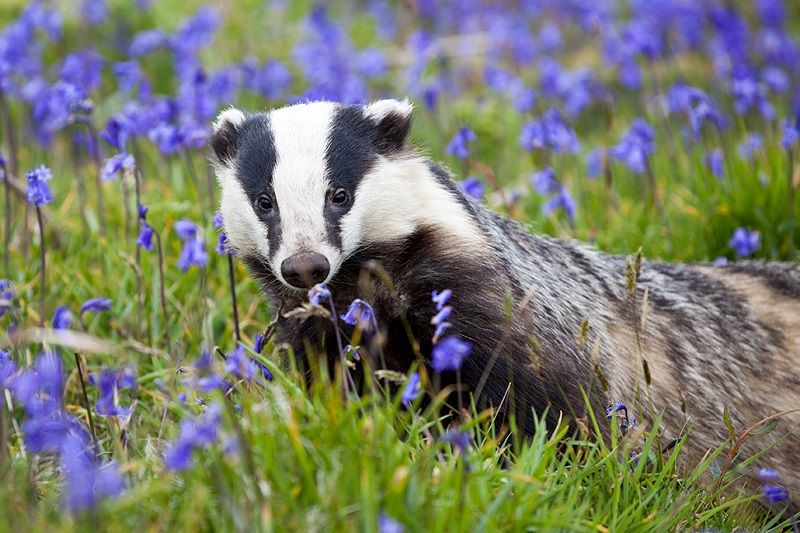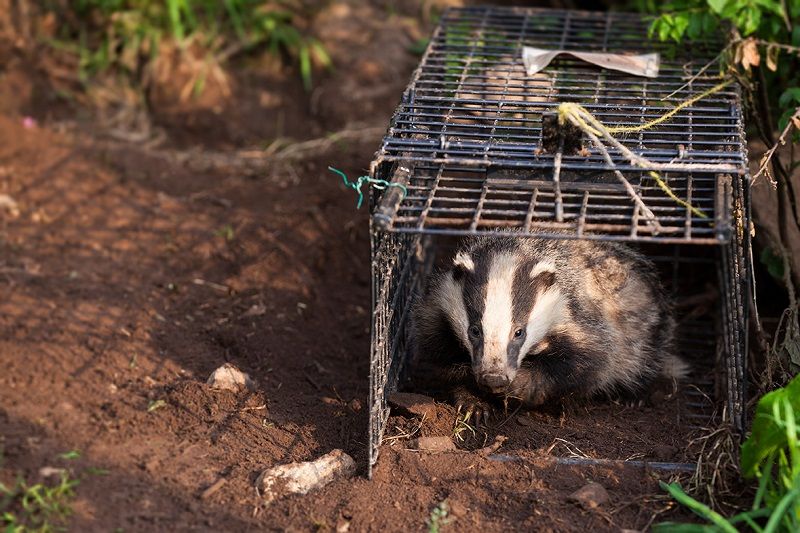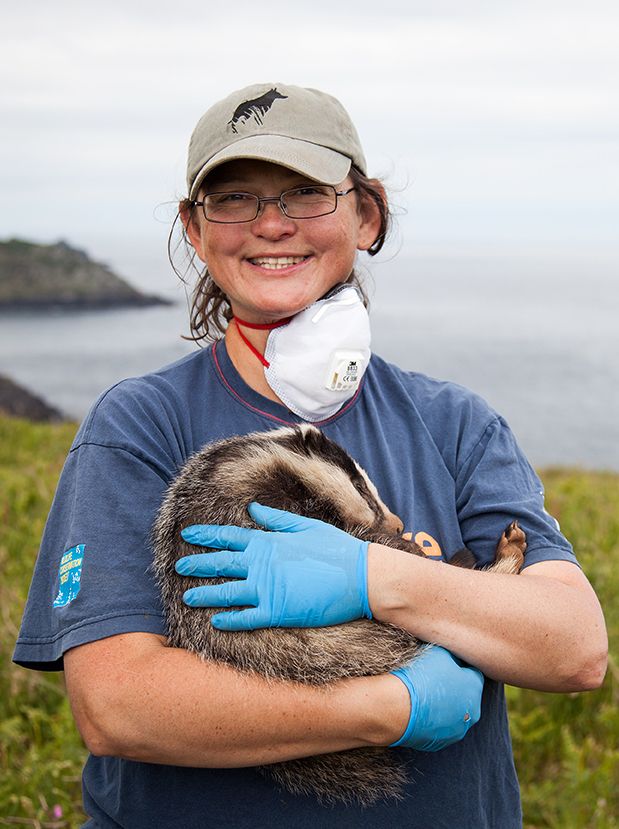Vaccinating Cornwall’s badgers in a bid to stop bovineTB

Culling has led to badger numbers plummeting across England.
Funding for this project has now finished
Blaming badgers won’t solve the problem
Until recently, badgers were widespread and abundant across the UK, playing an important ecological role as the largest remaining terrestrial carnivore. However, government-sponsored culling, intended to control bovine tuberculosis (bTB), is now licensed across most of the western part of England. The very areas where badgers were most abundant. Now their numbers have plummeted across large areas, which will have major ecological impacts across farmland in western England.
Badger vaccination is a promising alternative, which will hopefully reduce the bTB risks without either the ecological damage or the suffering that goes hand in hand with culling. Vaccination is not only cheaper than culling but, if it can reduce bTB prevalence in badgers, it is more likely to do what the government wants than culling: eradicate the disease. However, the government hasn’t invested the time and funds to evaluate whether vaccination can achieve these expected benefits and, worryingly, farming groups remain fiercely committed to culling.
Sound, science-based approaches might provide the answer
Working with farmers, conservationists, and community members in Cornwall, Rosie Woodroffe, from the Institute of Zoology in London, is heading up a team in this ongoing project to see if badger vaccination is a sustainable, humane, cost-efficient alternative to culling. Whilst vaccinating an ever-expanding area, a proportion of vaccinated badgers are anaesthetized, and blood and faecal samples that are collected allow bTB testing. This will enable Rosie to see whether bTB prevalence declines in the badger populations as the vaccination programme is repeated annually. At the same time, each spring faecal samples are collected for bTB testing from badger latrines in areas which have (and have not yet) been vaccinated. Testing can then evaluate whether changes in the vaccinated population differ from those in the non-vaccinated population. We hope that Rosie and her team are able to gather evidence to provide both government and farmers with proof of how badger vaccination may reduce bTB prevalence in the badger population. If it works, it means less transmission to cattle, which is great news for farmers too.
Rosie hopes her work will inspire more farmers to embrace vaccination, as the government plans (but has not yet started) to transition from culling to vaccination. If a vaccination programme is carried out in combination with improved cattle testing, and eventually with cattle vaccination (which the government is starting to trial), then it offers an opportunity to control, and possibly eventually eradicate, a disease which causes major hardship to farmers.
Interestingly, in Cornwall, there’s a unique type of colour morph in some of the badgers. Only found in the very far west, these badgers have narrow facial stripes, white ears, and pale spots on their feet. By trialing the vaccination where these unique animals are found, Rosie’s project is protecting them from being culled.
Progress to date
Thanks to your support, PTES was able to provide funds to the first stages of Rosie’s vaccination work. In 2019, she and her team vaccinated 156 badgers across 38 sq km at two sites in mid and west Cornwall. In 2020, the covid pandemic prevented them from expanding the vaccination area as planned, but luckily the team was able to re-vaccinate badgers in the same sites as in 2019, vaccinating 143 badgers.

Their work also involved capturing badgers to get blood samples to see if they had bTB. They took samples from 56 badgers in 2019 and 69 in 2020; however, test results are not yet available from 2020 due to covid restrictions on laboratory testing. This mid-Cornwall work, conducted in close partnership with Cornwall Wildlife Trust, is led by local farmers, who initiated the project and contribute to the costs of vaccination. Excitingly the work has attracted interest from policy makers, who have been welcomed to visit the project to learn about the potential role of badger vaccination in bTB management.
2021 will certainly be a year when vaccinations are high on everyone’s priority list. Let’s hope that badgers’ vaccination programme means that they will face a brighter future too.
Thank you to all our donors who helped us fund this work. You can help us support more projects like this with a donation today:

